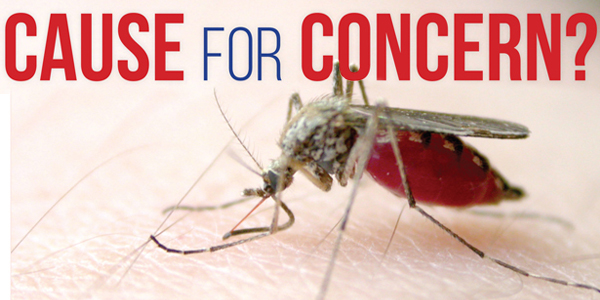Administrator: No state plan for Zika

By Jason Evans
Staff Reporter
jevans@thepccourier.com
PICKENS COUNTY — The state of South Carolina doesn’t seem to be taking the Zika virus very seriously — and that’s worrisome to some county officials.
Interim county administrator Tom Hendricks addressed the issue during his report to county council members at their May 2 meeting.
The virus can cause Zika virus disease, also known as Zika.
The virus is spread primarily through the bite of an infected Aedes species mosquito, according to the Centers for Disease Control. The most common symptoms of Zika are fever, rash, joint pain and conjunctivitis (red eyes).
Illness associated with Zika is usually mild, with symptoms lasting for several days to a week.
According to the CDC, people suffering from Zika rarely get sick enough to go to the hospital. Zika is rarely fatal.
Due to the mildness of the illness, many people do not realize they have been infected.
The CDC says that Zika virus infection can be very serious during pregnancy. Zika virus infection during pregnancy can cause a serious birth defect called microcephaly, as well as other severe fetal brain defects.
He said the county sent some representatives to a briefing on the virus in Columbia.
Hendricks said the state does not have a program or a plan regarding the Zika virus.
“Their first announcement was that they have no money,” Hendricks said.
He said county staff have taken information about mosquitos, West Nile virus and the Zika virus and created a pamphlet.
“We’re going to give these out to nursing homes, to the school bus drivers and the day care agencies,” Hendricks said. “Basically, it’s some commonsense stuff on how to keep yourself as safe as possible.”
The pamphlet advises readers to avoid mosquito bites by wearing long-sleeved shirts and long pants and stay in places with air conditioning and window and door screens to keep mosquitoes outside.
It also urges local residents to control mosquitoes in their homes and yards by emptying any containers of standing water. Mosquitos lay eggs near standing water.
County councilman Neil Smith asked Hendricks if the county had the ability to spray for mosquitos “if we need to, if the federal government finally decides this is more of a danger to us.”
Smith said he’s been to Florida several times recently and heard about a lot of spraying and “a lot of movement” by state government regarding the Zika virus there.
Two cities in Pickens County spray for mosquitos on alternate weeks, Hendricks said.
“Back many years ago, we had a countywide spray system with the county,” he said. “If it came to it, yes sir, if it became necessary for us to have a countywide spray program, we could do it. What I’ve found out from my last 60-something days, we can pretty much do anything if we put our nose to it.”
Hendricks said “there’s a lot of uncomfortable feelings” about the way the Zika virus is being explained by the federal government and the Center for Disease Control.
“I don’t know if that’s the normal stuff or if we do have a problem where they’re not explaining everything they need to explain to us,” Hendricks said.
For other Zika prevention tips, visit http://www.cdc.gov/zika/prevention/index.html.



























